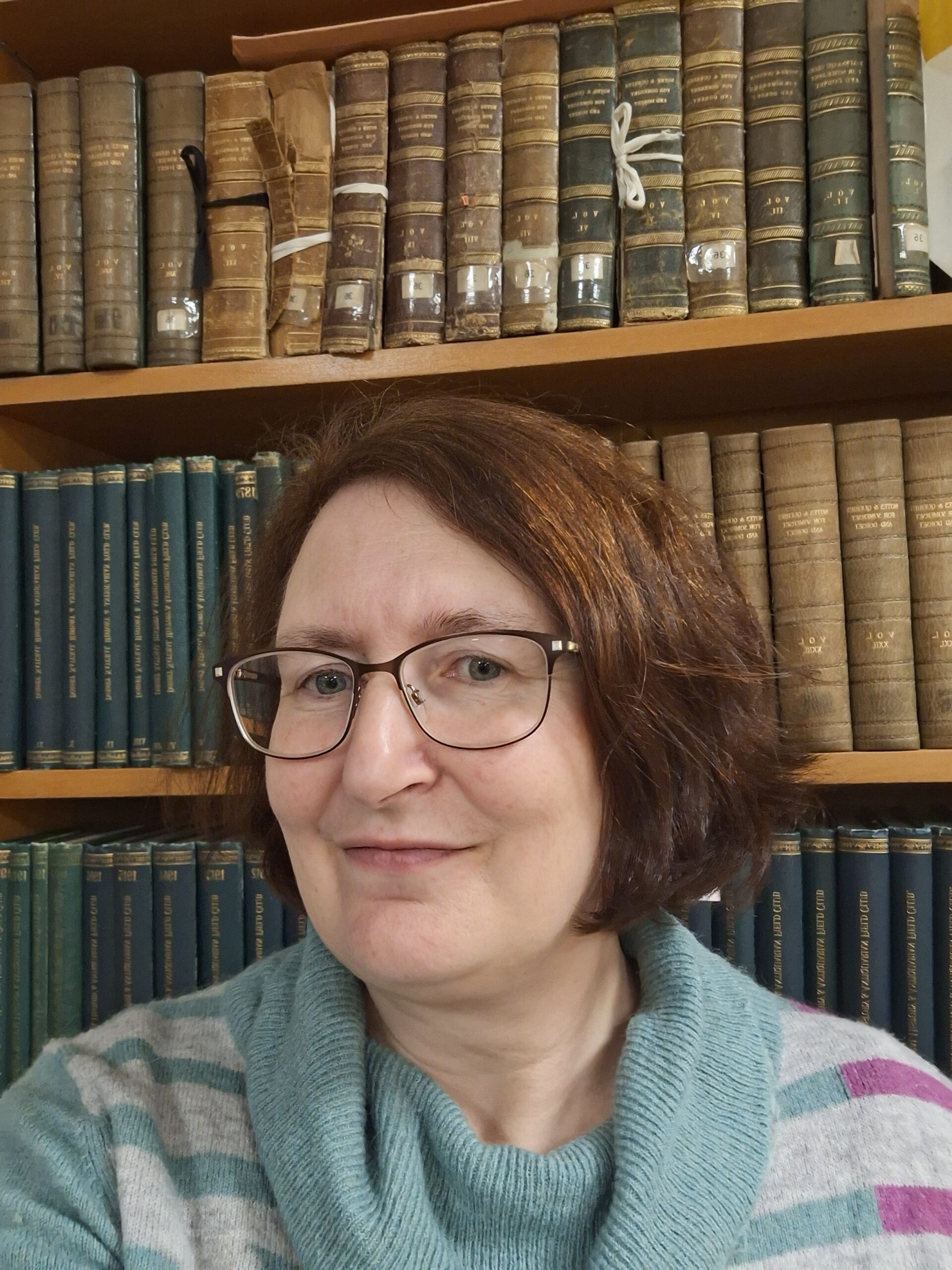Last autumn, Jacqui Halewood, Dorset History Centre’s long-standing Principal Archivist retired. We were joined in November by Claire Skinner, stepping into the role with us, and in today’s blog we wanted to introduce you to Claire…
—
January is traditionally a time both to look back and to look forwards. I would therefore like to take this opportunity to introduce myself as the new Principal Archivist for Dorset History Centre, to look back at some of the changes I’ve witnessed in the world of archives over the last thirty years, and to look to the future.

After qualifying as an archivist in 1992 at University College Wales, Aberystwyth, I had a fascinating year as a researcher at the Location Register of English Literary Manuscripts and Letters (what a tongue-twister!) at the University of Reading. This involved collating information about the whereabouts of archives of 18th and 19th century authors, so it feels like coming full circle to now be working in the home of Thomas Hardy’s archives. From 1993-2005 I was an archivist and senior records manager at Hampshire Record Office in Winchester. This was a period of immense change, going from handwritten catalogues and indexes to a digital cataloguing database, eventually published online via the new facility of the World Wide Web. In the beginning we only received enquiries by telephone, fax or letter – by the end of my time email had come to outnumber every other form of communication. Before online catalogues and images visitor numbers were high and people spent long periods of time at the repository when they visited – something transformed by the ease of self-service photography. The challenges of preserving authentic digital archives were beginning to be recognised but it looked very expensive and/or complex in the 1990s.
In my next role, as Principal Archivist for Wiltshire from 2006-2019, digital approaches went from the margins to the centre of our work. Family history was becoming the province of online commercial companies and a partnership was vital to our sustainability. Engagement with the archive service expanded to include social media channels. The nettle of digital preservation was beginning to be grasped and I worked with Sam Johnston of Dorset History Centre to support a local government consortium to acquire Preservica, a more affordable and promising “off the shelf” digital preservation system.
In my most recent role, as Archivist for The Box, Plymouth, from 2019-2024, I witnessed the growth in demand for digital access to and engagement with archives increase exponentially, partly fuelled by the global pandemic. I have also seen a significant rise in awareness of the cost of archive preservation, both digital and analogue, in terms of climate change. The Black Lives Matter movement of 2020 and calls for the decolonisation of archives and museums have also had a profound impact on my own priorities and practice as an archivist.
After over thirty years in the sector, I’m convinced that the world needs archivists, now more than ever. As Archbishop Desmond Tutu once said:
“Archives are the bulwark of a free society”
(speech by Tutu at a CITRA conference, Oct 2003)
They are vital evidence for the decisions by government at national and local level, by businesses, organisations, and landowners which may affect thousands of people’s lives. Evidencing who knew what, when, has been at the heart of recent inquiries into scandals such as the failings of the Horizon IT system at the Post Office. Archivists have an ethical code of conduct which leads us to protect archives from tampering and premature destruction so that they can be reliably passed on to the next generation. Archives, of course, are not neutral, and reflect the societal power imbalances of their time. Women and working-class men’s voices are historically underrepresented in the archives. The same is true of marginalised communities such as LGBTQ+ or Black communities, who often find their lives and experiences either completely missing or distorted in mainstream archives.
As Randall Jimerson said in 2007:
“Archivists can use the power of archives to promote accountability, open government, diversity, and social justice.”
We cannot change the power imbalances of the past, but we can acknowledge them and work to include forgotten and marginalised voices for the future.
I am looking forward to building on the existing exciting work at Dorset History Centre undertaken by Maria Gayton, our community outreach officer, and others, to build relationships with communities across Dorset and encourage them to share their stories with the History Centre. I will also be encouraging colleagues to revisit catalogues and update or contextualise outdated language. I also hope to work to promote equity of access to opportunities for work and volunteering. One of the key challenges facing Dorset History Centre in 2025 is the need for expansion of our premises. In our fundraising and planning, we need to ensure inclusive and fair access are at the heart of these improvements. We also need to ensure that any new building work is sustainable and builds on the excellent work my predecessor, Jacqui Halewood, and others carried out to have a passive approach to environmental management in the strongrooms.
Since my arrival in November 2024 I have been given a warm welcome by the staff and volunteers of Dorset History Centre and the Dorset Archives Trust. I am impressed by the work of Dorset Archives Trust in fund-raising to help acquire archives and look forward to working with you to develop our programme of events for 2025. Fund-raising will be crucial to any expansion of the History Centre and we will be grateful for all and every donations in the coming months.
I look forward to working with Sam and all my new colleagues, to see the Centre go from strength to strength, for the benefit of the people of Dorset.

